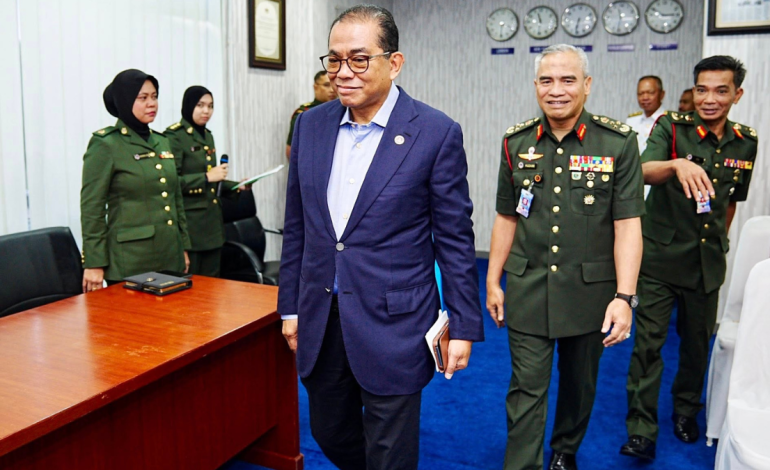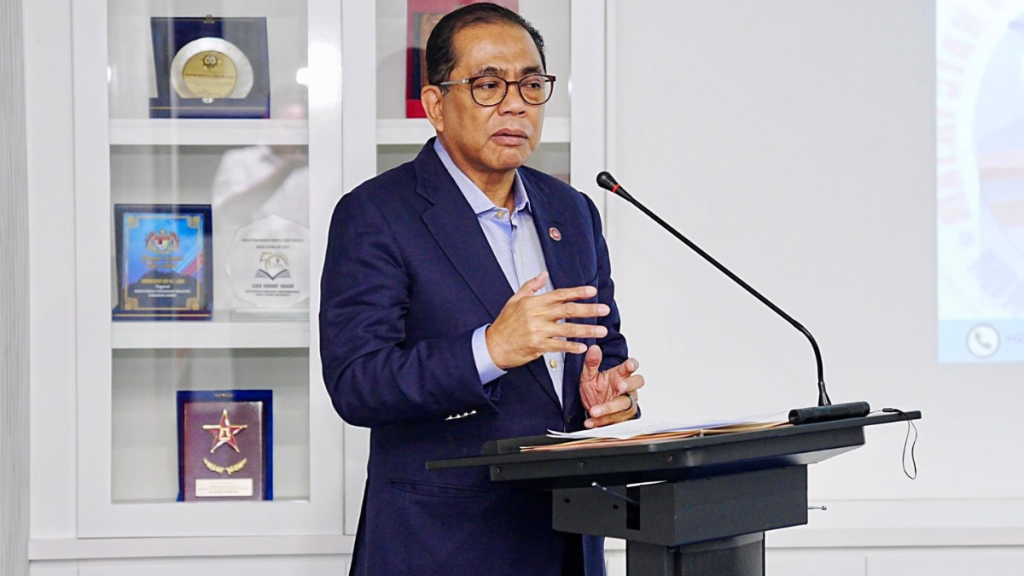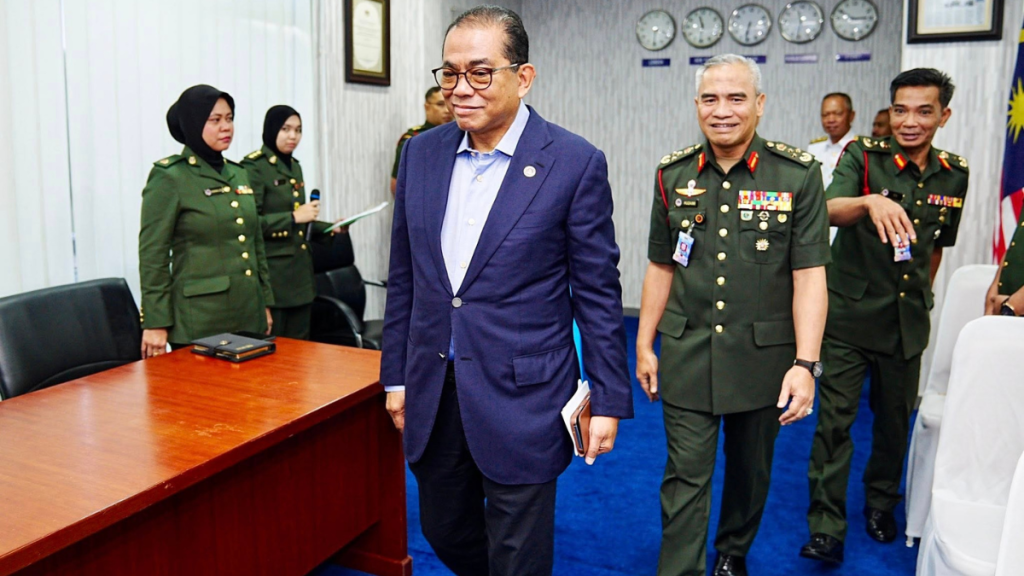MINDEF Considers Establishing Dedicated Cyber Force to Counter Emerging Digital Threats

KUALA LUMPUR, 25 March 2025 – The Ministry of Defence (MINDEF) is actively evaluating the formation of a dedicated cyber force within the Malaysian Armed Forces to address increasing cyber threats and misinformation warfare, according to Defence Minister Datuk Seri Mohamed Khaled Nordin.
The proposal aligns with the government’s strategic objective to modernize Malaysia’s military infrastructure while strengthening national defense in the digital age.
Rising Digital Threats and Military Modernisation
The digital battlefield has become as critical as traditional warfare, with state-sponsored cyberattacks, espionage, and fake news campaigns threatening national security. Malaysia, like many nations, is facing growing threats in cyberspace, including attempts to disrupt communications, steal sensitive data, and manipulate public perception.
Speaking at the Defence Ministry’s Town Hall session, Mohamed Khaled said the military must evolve to be “digital-era ready,” emphasizing the need to build competencies and assets in cybersecurity, digital intelligence, and cyber resilience.
“We need a cyber command or cyber force that can anticipate, detect, and respond to threats in the digital domain with military-grade readiness,” he stated.

Strategic Objectives and Scope
If implemented, the cyber force would be tasked with:
- Monitoring and neutralizing cyberattacks targeting critical infrastructure, government networks, and military systems.
- Building deterrence capabilities against foreign cyber intrusion.
- Developing offensive cyber capabilities for tactical scenarios.
- Collaborating with national and international cyber defense networks.
The unit is expected to include military personnel trained in cybersecurity, AI-driven defense analytics, ethical hacking, and electronic warfare.
Cybersecurity in the Malaysian Defence Context
Malaysia has taken several steps to bolster its national cybersecurity posture, including the 2024 revision of the Cyber Security Bill and strengthening agencies like National Cyber Security Agency (NACSA).
However, experts argue that military-specific cyber threats require a more specialized and agile force, embedded directly within the command structure of the Malaysian Armed Forces (MAF).
Brigadier General (Rtd) Datuk Rosli Hassan, a security analyst, believes the initiative is crucial.
“Modern warfare is increasingly asymmetric. Cyber dominance is a form of deterrence. This move is timely and necessary.”
Regional and Global Implications
Southeast Asia has become a hotspot for cyber espionage and disinformation campaigns, particularly amid geopolitical tensions involving major powers. Countries like Singapore and Indonesia have already established or expanded military cyber divisions.
Malaysia’s move to create a cyber force would bring it in line with regional peers and enhance collaboration under ASEAN Defence Ministers’ Meeting (ADMM) and Five Power Defence Arrangements (FPDA) frameworks.

Potential Challenges
Establishing a cyber force will require:
- Recruiting and training specialized talent, often competing with the private sector.
- Allocating dedicated budgets amidst defense spending constraints.
- Defining clear jurisdiction between MINDEF and civilian cyber agencies like NACSA.
Policy analysts recommend strong inter-agency coordination and legal frameworks to prevent operational overlaps or legal ambiguity.
A Forward-Looking Defence Strategy
The proposed cyber force reflects Malaysia’s growing recognition of non-traditional threats in the modern battlefield. With national security increasingly reliant on digital integrity, this initiative could strengthen Malaysia’s defense resilience and cyber sovereignty.
As the proposal moves from deliberation to design, public attention will focus on implementation, transparency, and coordination with Malaysia’s broader digital and defense strategies.
For further updates on national security developments and digital transformation in Malaysia, stay connected with ForwardMalaysia.my.








